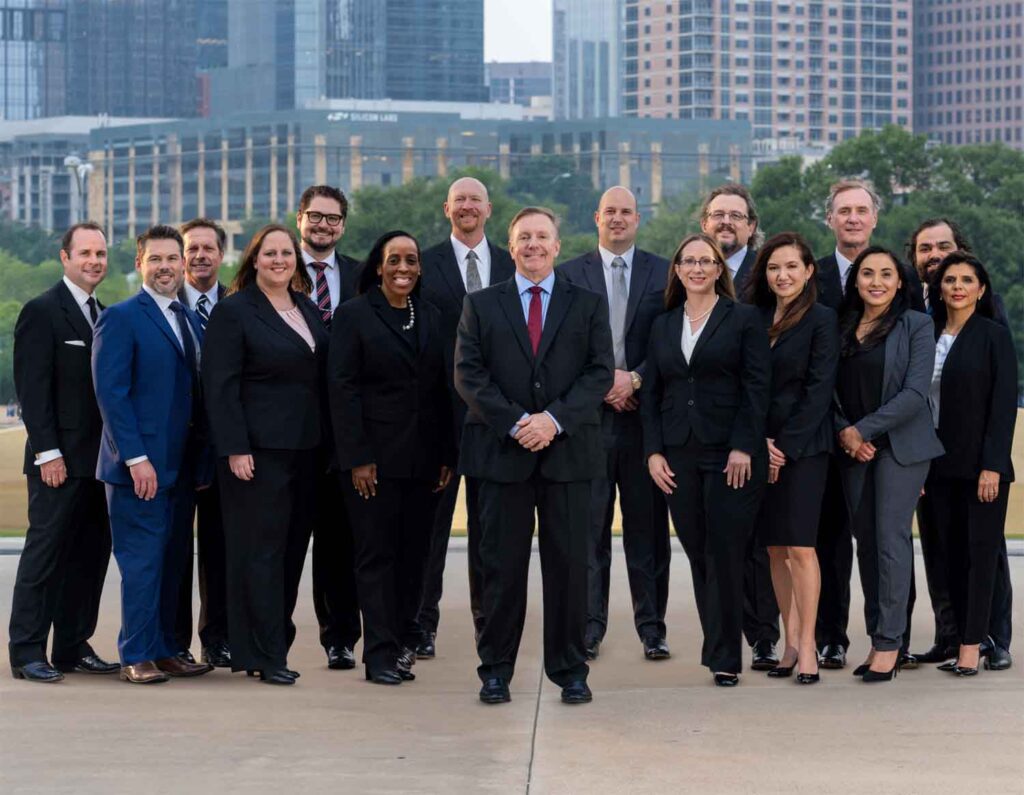Schedule a free consultation today.
The Carlson Law Firm secures $1.5 million settlement for client who suffered serious injuries in an Austin car accident. |
Home - Practice Areas - Nursing Home Abuse
The decision to place a loved one in a nursing home is often made with the expectation of receiving quality care and support. However, neglect and inadequate supervision can sometimes lead to severe consequences, such as stage 3 and 4 bedsores or falls. Nursing home neglect occurs when staff fail to provide the necessary care or attention, which can result in serious, life-threatening injuries. Unfortunately, when these injuries are caused by negligence, families may be eligible for compensation through legal action.
Some common forms of neglect that lead to severe injuries in nursing homes include:
The consequences of these injuries can be devastating, often leading to permanent disabilities or even death. Stage 3 and 4 bedsores can cause severe pain, infections, and deep tissue damage, while falls may result in broken bones, traumatic brain injuries, and other life-altering conditions.
Additionally, the emotional and financial toll on families is significant, as they may face ongoing medical expenses, loss of income, and emotional distress.
If your loved one has suffered from severe neglect in a Texas nursing home, understanding your legal rights and options is crucial. Contact our Texas nursing home neglect attorneys today to learn more.
The Carlson Law Firm is dedicated to helping families recover everything they’re owed when skilled care facilities fail to provide the level of care your loved ones deserves.
If your loved one suffered severe and permanent injuries from one of the following or death, we may be able to help:
Schedule a free consultation today.
Unfortunately, neglect in nursing homes is a serious issue that can lead to severe and life-threatening injuries, such as stage 3 and stage 4 bedsores and falls. These injuries are often preventable and result from inadequate supervision, improper medical care, or failure to address a resident’s needs. Recognizing the signs of neglect is crucial for ensuring the safety and well-being of nursing home residents and holding care facilities accountable for their responsibilities. Understanding these warning signs can help protect your loved ones from further harm and ensure they receive the quality of care they deserve.
Stage 3 bedsores, also known as pressure ulcers, occur when there is a significant breakdown of the skin and underlying tissue due to prolonged pressure or friction. In nursing homes, these sores are often a sign of neglect, as they typically develop when residents are not repositioned regularly or do not receive adequate care. Recognizing the signs of stage 3 bedsores is crucial for preventing further deterioration and ensuring that proper medical attention is provided.
Stage 4 bedsores represent the most severe form of pressure ulcers, involving extensive damage to the skin, muscles, and possibly bone. These wounds are often a result of extreme neglect, where there has been a long period without adequate care or repositioning. Identifying stage 4 bedsores early is critical, as they are prone to serious infections and can lead to life-threatening complications.
Falls are a common but preventable risk in nursing homes, often caused by inadequate supervision, poor safety measures, or neglect. When falls occur frequently or lead to serious injuries, they may indicate a failure on the part of the nursing home staff to provide the necessary care and safety precautions. Recognizing the signs of neglect related to falls can help protect residents from further harm.
Knowing what to look for can alert you to when to intervene and identify when you need to pursue a lawsuit to hold the facility accountable.
No, it doesn’t have to be difficult to sue a nursing home. While filing a lawsuit can seem complicated or intimidating, a Nursing Home Abuse and Neglect Lawyer can walk you through every step of the process. Our attorneys and legal teams have years of experience with these types of cases. They can help you protect the ones you love and hold the institutions that caused your loved one’s suffering responsible for their failure to provide adequate care.
An attorney can thoroughly investigate the circumstances surrounding the neglect, gathering evidence such as medical records, witness statements, and facility reports to build a strong case.
Determining who is responsible for the neglect is essential. An attorney can identify liable parties, whether it’s the nursing home facility, individual staff members, or a third-party contractor, and establish the legal grounds for the claim.
Nursing home neglect cases can be complex, involving multiple laws and regulations at the state and federal levels. An attorney with experience in elder law or personal injury law can navigate these complexities to ensure the case is handled correctly.
Throughout your case, an attorney offers expert advice, helping you understand your legal rights and options. They guide you through each step, ensuring you make informed decisions that align with your best interests.
Attorneys can negotiate with insurance companies on behalf of the family to seek fair compensation for medical expenses, pain and suffering, and other damages related to the neglect.
If a fair settlement cannot be reached, an attorney can file a lawsuit on behalf of the resident or their family. This legal action can compel the nursing home to take responsibility and can lead to a court-ordered settlement or judgment.
An attorney can help families seek the maximum financial compensation available for the neglect their loved ones have suffered. This includes covering costs for medical treatments, ongoing care, and other related expenses, as well as compensation for pain and suffering, loss of quality of life, and punitive damages if applicable.
These services we provide will ensure you have the best possible support and representation, helping you achieve a fair outcome in your case.
A nursing home abuse lawyer can provide invaluable assistance if your child has suffered an injury during birth. They can help you understand your legal rights, investigate whether negligence or malpractice contributed to the injury or death and build a strong case to pursue compensation. With expertise in handling complex medical evidence and navigating the legal process, a nursing home abuse lawyer ensures you receive the support and financial resources needed for your child’s ongoing care and recovery.


Choosing the right lawyer for a nursing home abuse and neglect case is crucial for ensuring the best possible outcome for your family. Here are some key steps to help you choose the right lawyer:
Living in an assisted living facility is often a decision made with the hope of providing a loved one with the appropriate level of care, support, and community. These facilities are designed to offer a balance between independent living and the medical assistance that may be needed as individuals age. However, sometimes residents are placed in facilities that do not adequately meet their care needs. When an assisted living facility fails to provide the appropriate level of care due to improper placement, serious injuries and health complications can occur, potentially leading to a lawsuit.
Improper placement occurs when a resident is admitted to an assisted living facility that is not equipped to handle their specific medical or personal care needs. This can happen for several reasons:
When an assisted living facility improperly places a resident and fails to provide the necessary care, it can lead to severe consequences, including physical injuries, worsening of medical conditions, emotional distress, or even death. In such cases, the facility may be held liable for negligence, and a lawsuit can arise based on several grounds:
A lawsuit can help hold the facility accountable for its negligence, secure compensation for the resident and their family, and bring about necessary changes to prevent future harm to others. If you believe your loved one has been improperly placed in an assisted living facility and suffered as a result, consulting with an experienced attorney can help you understand your legal options and protect your loved one’s rights.

If you suspect your loved one is being neglected in a Texas nursing home, take immediate action. Document any signs of neglect, such as injuries or changes in behavior, and speak with the nursing home management. If the situation does not improve, you can report the neglect to state authorities and consider consulting with an attorney experienced in Texas nursing home neglect cases to explore your legal options.
Contact Information:
Common signs of nursing home neglect include unexplained weight loss, dehydration, poor hygiene, untreated bedsores, frequent infections, dirty living conditions, sudden changes in behavior, or a noticeable decline in a resident’s physical or mental health. Families should be vigilant for these signs and address any concerns with the facility immediately.
Neglect is typically a failure to provide necessary care, often due to lack of attention, resources, or understaffing. Abuse, on the other hand, involves intentional actions that cause harm or distress to a resident. Abuse can be physical, emotional, sexual, or financial. While neglect can be unintentional, it is still harmful and can lead to serious health complications or even death.
Yes, you can sue a nursing home if a fall results from neglect or inadequate care. Legal action may be warranted if the facility failed to provide proper supervision, maintain a safe environment, or address the mobility and safety needs of a resident. Consulting with an attorney experienced in nursing home neglect cases can help determine if you have a viable claim and guide you through the legal process.
Yes, you can sue a nursing home if bedsores develop due to neglect or insufficient care. Legal action may be appropriate if the facility failed to regularly reposition immobile residents, provide necessary medical care, or maintain proper hygiene and nutrition. An attorney with experience in nursing home neglect cases can evaluate your situation and help you pursue a claim if warranted.
Yes, nursing homes are generally required to notify a resident’s family or legal representative if the resident is injured. Most states, including Texas, have regulations that mandate nursing homes to inform family members promptly about any significant changes in a resident’s condition, including injuries, falls, or the development of serious conditions like bedsores. This communication is crucial for ensuring that the resident receives timely medical care and that family members are aware of their loved one’s health status.
If you believe that a nursing home has failed to notify you of an injury, you should address the issue with the facility’s management immediately and consider reporting it to state regulatory agencies. Consulting with an attorney specializing in nursing home neglect can also help you understand your legal rights and options.

You can speak to an experienced nursing home neglect attorney from The Carlson Law Firm at 866-779-0336. The best legal representation comes from lawyers who care about you and care about your situation. Our malpractice lawyers will treat you with the respect you deserve and give your case the attention it requires.

With over a dozen locations throughout Texas, there’s a Carlson Law Firm near you. We have law offices located in Killeen, Temple, Waco, Round Rock, Austin, San Antonio, Kerrville, Laredo, Bryan, Lubbock, Midland, San Angelo, San Marcos and Corpus Christi.
100 E. Central Texas Expy
Killeen, TX 76541
(254) 526-5688
11606 N. I-35
Austin, TX 78753
(512) 346-5688
135 W. Slaughter Ln, Ste A
Austin, TX 78748
(512) 804-7277
6243 I-10 #550
San Antonio, TX 78201
(210) 696-8600
618 SW Military Dr.
San Antonio, TX 78221
(210) 923-7700
1109 W. Baker Road, Ste A
Baytown, TX 77521
(832) 806-6155
1121 Briarcrest Drive, Ste 200
Bryan, TX 77802
(979) 260-5688
653 Everhart Rd, Ste 105
Corpus Christi, TX 78411
(361) 336-3317
301 Junction Highway, Ste 100
Kerrville, TX 78028
(830) 257-7575
5112 McPherson, Ste 106
Laredo, TX 78041
(956) 712-2588
10101 Quaker Ave
Lubbock, TX 79424
(806) 401-0500
900 Lp 250 Frontage Rd b
Midland, TX 79705
(432) 247-6611
1717 N. I-35 Ste 305
Round Rock, TX 78664
(512) 671-7277
4282 S Jackson St.
San angelo, TX 76903
(325) 238-4322
2010 SW H K Dodgen Loop, Ste 201
Temple TX 76504
(254) 771-5688
2420 I-35 South
Waco, TX 76706
(254) 772-5653
2909 Garnett Ave
Wichita Falls, TX 76308
(940) 285-6333
1500 Rosecrans Ave Ste 500
Manhattan Beach, CA 90266
(254) 516-3570
33rd Ave N Ste 220
St. Petersburg, FL 33701
(727) 373-4655
100 E. Central Texas Expy
Killeen, TX 76541
(254) 526-5688
11606 N. I-35
Austin, TX 78753
(512) 346-5688
135 W. Slaughter Ln, Ste A
Austin, TX 78748
(512) 804-7277
6243 I-10 #550
San Antonio, TX 78201
(210) 696-8600
618 SW Military Dr.
San Antonio, TX 78221
(210) 923-7700
1109 W. Baker Road, Ste A
Baytown, TX 77521
(832) 806-6155
1421 S Main St. Ste 113
Boerne, TX 78006
(830) 470-8777
1121 Briarcrest Drive, Ste 200
Bryan, TX 77802
(979) 260-5688
653 Everhart Rd, Ste 105
Corpus Christi, TX 78411
(361) 336-3317
5112 McPherson, Ste 106
Laredo, TX 78041
(956) 712-2588
10101 Quaker Ave
Lubbock, TX 79424
(806) 401-0500
900 Lp 250 Frontage Rd b
Midland, TX 79705
(432) 247-6611
559 S I-35 Frontage Rd Ste 250,
Round Rock, TX 78664
(512) 671-7277
4282 S Jackson St.
San angelo, TX 76903
(325) 238-4322
2010 SW H K Dodgen Loop, Ste 201
Temple TX 76504
(254) 771-5688
2420 I-35 South
Waco, TX 76706
(254) 772-5653
2909 Garnett Ave
Wichita Falls, TX 76308
(940) 285-6333
1500 Rosecrans Ave Ste 500
Manhattan Beach, CA 90266
(254) 516-3570
4700 Millenia Blvd. STE 500
Orlando, FL 32839
(727) 373-4655